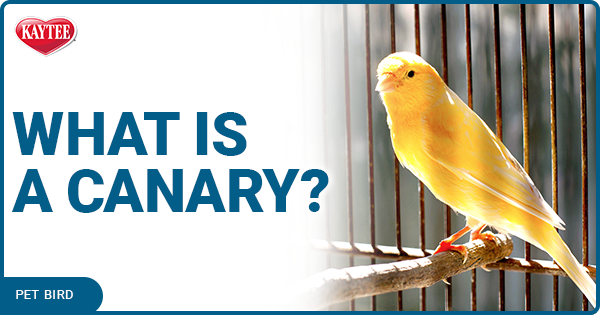Key Takeaways
-
Adopting a canary from a rescue group can cost between $25 and $200, depending on the variety.
-
Canaries are relatively low-maintenance but require daily care, including feeding and cage cleaning.
-
These birds can live for 5 to 15 years, making them a long-term commitment.
-
Canaries can recognize their owners through consistent interaction and care.
-
Providing toys and engaging activities is essential for a canary’s mental and physical health.
Guide to Adopting a Canary Through Rescue Groups
Adopting a canary through a rescue group is a rewarding experience. Not only do you get to bring a new feathered friend into your home, but you also provide a second chance for a bird in need. But before you rush into adoption, it’s important to understand what caring for a canary entails.

“What Is A Canary?” from www.kaytee.com and used with no modifications.
Why Choose to Adopt a Canary?
Adopting a canary has several benefits. First and foremost, you’re giving a bird a new lease on life. Many canaries end up in rescue groups due to unforeseen circumstances, such as their previous owners being unable to care for them anymore. By adopting, you’re helping to reduce the demand for birds bred in captivity.
Additionally, canaries are known for their beautiful singing and vibrant colors. They can brighten up any home with their cheerful presence. Unlike some other pets, canaries are relatively low-maintenance, making them ideal for busy households or those new to bird ownership.
Basics of Canary Care
Before bringing a canary home, it’s essential to understand their basic care requirements. Canaries need a clean and spacious cage, a balanced diet, and regular interaction to thrive. Here are the primary aspects of canary care:
-
Cage: Ensure the cage is large enough for your canary to fly around. A minimum size of 18x18x24 inches is recommended.
-
Diet: Canaries primarily eat seeds, but their diet should be supplemented with fresh fruits and vegetables.
-
Interaction: While canaries are not as interactive as some other birds, they still enjoy human interaction and can even be trained to perform simple tricks.
-
Cleanliness: Regularly clean the cage to prevent the buildup of waste and ensure a healthy environment for your canary.
Are Canaries Easy to Keep?
Canaries are generally easy to keep, but they do have specific needs that must be met to ensure their well-being. Understanding these requirements will help you provide the best care for your new pet.
Daily Care Requirements
Taking care of a canary involves daily tasks that ensure their health and happiness. Here’s a quick rundown of what you need to do each day:
-
Feeding: Provide fresh food and water daily. Ensure their diet includes a variety of seeds, fruits, and vegetables.
-
Cage Cleaning: Remove any uneaten food and clean the cage liner to prevent bacteria buildup.
-
Interaction: Spend time near the cage and talk to your canary to help them get used to your presence.
“Canaries are relatively easy to care for, but they do require daily attention to thrive.”
Health and Wellness
Keeping your canary healthy involves more than just feeding and cleaning. Regular health checks and a proper environment are crucial. Look out for signs of illness such as changes in eating habits, feather condition, or behavior. If you notice anything unusual, consult a veterinarian experienced with birds.
Canary Lifespan
Canaries can live anywhere from 5 to 15 years, depending on their care and living conditions. This makes them a long-term commitment. Ensuring a balanced diet, a clean environment, and regular health checks can help your canary live a long and healthy life.
How Much Do Canaries Cost?
The cost of adopting a canary can vary widely based on several factors, including the bird’s age, variety, and the rescue group. Here’s a breakdown of the typical costs involved:
Adoption Fees at Rescue Groups
Adoption fees for canaries typically range from $25 to $200. These fees often cover initial veterinary checks and sometimes even a starter kit with essentials like food and a cage. If you’re interested in adopting other pets, you might want to check out options for an American Foxhound.
When considering adopting a canary, it’s natural to wonder if these charming birds can form a bond with their owners. The good news is that canaries, while not as interactive as some larger birds, can indeed recognize and respond to their caregivers with time and patience. For those interested in adopting other bird species, you might want to consider African Grey Parrot adoption as well.
Do Canaries Recognize Their Owners?
“Canaries are relatively easy to care for, but they do require daily attention to thrive.”
Canaries may not show affection in the same way as dogs or cats, but they can certainly recognize their owners. They become familiar with your voice, presence, and routine. This recognition can lead to a rewarding relationship where your canary feels comfortable and safe around you.
For instance, you might notice your canary perking up and singing more when you enter the room or call its name. These are subtle yet significant signs that your bird knows and trusts you.
Bonding with Your Canary
Building a bond with your canary takes time and consistency. Here are some tips to help strengthen your relationship:
-
Spend Time Near the Cage: Simply being present near your canary’s cage can help it get used to you. Talk softly to your bird and move slowly to avoid startling it.
-
Hand Feeding: Offering treats from your hand can build trust. Start by placing your hand near the cage and gradually work towards having your canary eat from your hand.
-
Routine Interaction: Consistency is key. Spend time interacting with your canary every day to help it become familiar with you.
Signs of Recognition
Recognizing the signs that your canary knows you can be heartwarming. Look for these behaviors:
-
Increased Singing: Canaries often sing more when they are happy and comfortable. If your canary sings when you’re around, it’s a good sign.
-
Approaching You: If your canary comes closer to you when you’re near the cage, it shows trust and recognition.
-
Relaxed Behavior: A relaxed canary will preen and rest comfortably in your presence, indicating it feels safe.
How to Enhance Trust
Enhancing trust with your canary involves creating a positive and safe environment. Here are some additional tips:
-
Gentle Handling: If your canary is comfortable with it, gentle handling can help build trust. Always be calm and patient.
-
Positive Reinforcement: Reward your canary with treats and praise when it shows signs of trust and recognition.
-
Respect Boundaries: Not all canaries enjoy being handled. Respect your bird’s boundaries and never force interaction.
What Do Canaries Like to Play With?
“Providing toys and engaging activities is essential for a canary’s mental and physical health.”
Canaries may be small, but they have big personalities and enjoy a variety of toys and activities. Keeping your canary mentally and physically stimulated is crucial for its well-being.
Types of Toys for Canaries
There are many types of toys that can keep your canary entertained. Here are some popular options:
-
Swings: Canaries love to perch on swings and enjoy the gentle movement.
-
Ladders: Climbing ladders provides physical exercise and mental stimulation.
-
Mirrors: Many canaries enjoy looking at their reflection in mirrors.
-
Chew Toys: Safe chew toys can help keep your canary’s beak healthy and provide entertainment.
It’s important to rotate toys regularly to keep your canary interested and engaged.
Incorporating Playtime into Daily Routine
Incorporating playtime into your canary’s daily routine is essential for its health and happiness. If you are considering adopting a bird, you might want to learn more about the African Grey Parrot adoption process. Here’s how you can do it:
-
Dedicated Play Sessions: Set aside time each day for interactive play with your canary. This can include offering new toys or simply spending time talking to your bird.
-
Variety: Keep things interesting by rotating toys and introducing new activities. This prevents boredom and encourages exploration.
-
Environmental Enrichment: Create a stimulating environment with perches, swings, and different textures for your canary to explore.
How to Adopt a Canary Through Rescue Groups
Adopting a canary through a rescue group is a fulfilling way to bring a new pet into your home. Rescue groups often have canaries that need loving homes due to various circumstances. Here’s how you can go about the adoption process:
First, research local rescue groups that specialize in birds or small animals. Many organizations have websites where you can view available canaries and learn more about their adoption process.
Once you’ve found a rescue group, reach out to them to express your interest in adopting a canary. They will likely have an application process that includes questions about your experience with birds, your living situation, and how you plan to care for your new pet. For more information, you can check out this guide on parrot adoption.
“Adopting a canary through a rescue group is a fulfilling way to bring a new pet into your home.”
Finding a Rescue Group
Finding a reputable rescue group is the first step in the adoption process. Here are some tips to help you find the right organization:
-
Online Research: Use search engines and social media to find rescue groups in your area. Websites like Adopt a Pet and Petfinder can also be helpful.
-
Local Shelters: Contact local animal shelters to see if they have any canaries available for adoption or if they can recommend a rescue group.
-
Bird Clubs: Join local bird clubs or online forums to connect with other bird enthusiasts who may have recommendations for reputable rescue groups.
Once you’ve identified a few potential rescue groups, take the time to visit their facilities or speak with their staff to ensure they provide proper care for their birds.
Preparing Your Home for a Canary
Before bringing your new canary home, it’s essential to prepare a safe and comfortable environment. The first step is to set up a suitable cage. Ensure the cage is spacious enough for your canary to move around freely. A minimum size of 18x18x24 inches is recommended. The cage should have horizontal bars to allow your canary to climb and exercise.
Place the cage in a quiet area of your home, away from direct sunlight, drafts, and loud noises. Canaries are sensitive to sudden temperature changes and loud sounds, which can cause stress. Provide a variety of perches of different sizes and textures to keep your canary’s feet healthy and prevent boredom. For more information on adopting birds, check out this guide on Amazon parrot adoption.
Next, set up feeding stations with clean food and water dishes. Canaries need a balanced diet that includes seeds, fresh fruits, and vegetables. Make sure to clean the dishes daily to prevent bacterial growth. Additionally, include a cuttlebone or mineral block in the cage to provide essential calcium and minerals.
Conclusion and Key Points
Adopting a canary through a rescue group is a wonderful way to give a bird a second chance at a happy life. Canaries are relatively low-maintenance pets, but they do require daily care and attention to thrive. Understanding their needs and providing a stimulating environment will help ensure your canary remains healthy and happy.
-
Adopting a canary from a rescue group can cost between $25 and $200, depending on the variety.
-
Canaries are relatively low-maintenance but require daily care, including feeding and cage cleaning.
-
These birds can live for 5 to 15 years, making them a long-term commitment.
-
Canaries can recognize their owners through consistent interaction and care.
-
Providing toys and engaging activities is essential for a canary’s mental and physical health.
FAQ
What is the typical lifespan of a canary?
“Canaries can live anywhere from 5 to 15 years, depending on their care and living conditions.”
Ensuring a balanced diet, a clean environment, and regular health checks can help your canary live a long and healthy life. It’s important to commit to this long-term care when adopting a canary.
Can I keep a canary with other birds?
Canaries can be kept with other birds, but it’s essential to choose compatible species. Canaries are generally peaceful and can coexist with other small, non-aggressive birds like finches. However, avoid housing them with larger or more aggressive birds, as this can lead to stress and potential injury.
What should I feed my canary?
Canaries primarily eat seeds, but their diet should be supplemented with fresh fruits and vegetables. For more information on bird care, check out our guide on African Grey Parrot adoption. A balanced diet includes:
-
Seeds: A high-quality seed mix formulated for canaries.
-
Fruits: Apples, pears, and berries (remove seeds and pits).
-
Vegetables: Leafy greens, carrots, and bell peppers.
-
Supplements: Cuttlebone or mineral block for calcium and minerals.
“Providing a varied diet ensures your canary gets all the necessary nutrients for a healthy life.”
How do I know if my canary is healthy?
Regularly monitoring your canary’s health is crucial. Look for the following signs of a healthy canary:
-
Active and Alert: A healthy canary is active, alert, and responsive to its environment.
-
Clean Feathers: Smooth, clean feathers without bald patches or excessive fluffing.
-
Bright Eyes: Clear, bright eyes without discharge or cloudiness.
-
Normal Droppings: Consistent, well-formed droppings without changes in color or consistency.
If you notice any signs of illness, such as lethargy, changes in eating habits, or abnormal droppings, consult a veterinarian experienced with birds immediately. Early detection and treatment can make a significant difference in your canary’s health.


